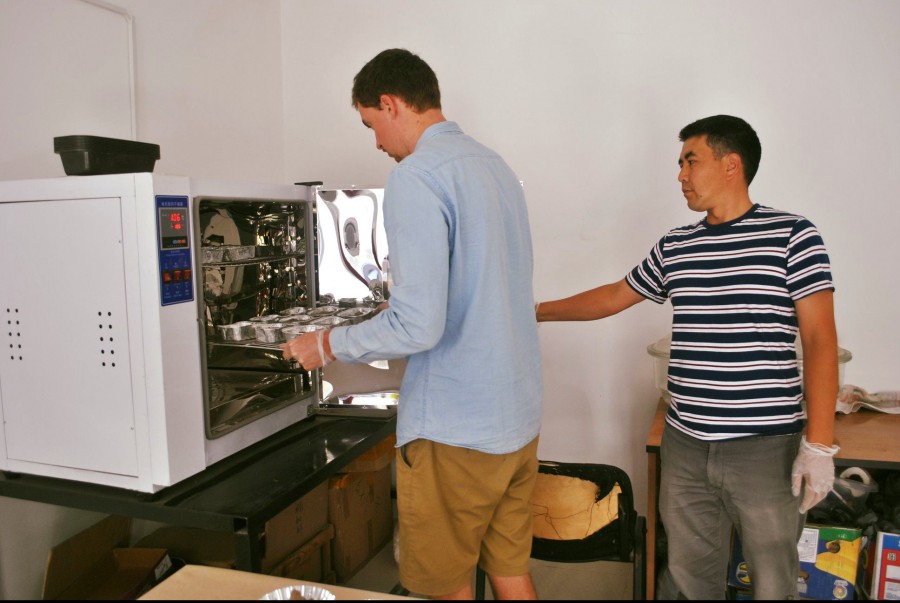
Soil samples were taken at 120 monitoring points in pastures in Batken, Osh, Jalal-Abad and Naryn oblasts. A drill was used to take samples at a depth of 30 cm. Representatives of pasture committees were involved in the process and showed great interest not only in the sampling but also in the results obtained.
The main objective of the project was to determine the organic carbon content of rangelands and arable land.
The collected soil samples were subjected to a thorough analysis of their carbon content in the laboratory of CAMP Alatoo PF. Traditionally, determination of soil organic carbon content is based on two methods: (1) oxidation of organic matter and (2) dry burning/combustion of soil. The carbon combustion method was chosen for the analysis, which is applicable to all solids.
Available data on organic matter content and total vegetation biomass on rangeland soils allowed to analyse the relationship of soil organic carbon with biomass in the context of the country.
The project organised a workshop on "Soil Carbon Determination and Pasture Monitoring" for 30 2nd and 3rd year students of the "Agronomy" and "Phytosanitary Control of Customs" faculties of the Kyrgyz National Agrarian University.
The workshop was a useful addition to the teaching process, which included the study of such a subject as soil science. The students were given a brief overview of land conditions in Kyrgyzstan, location and varieties of pastures and causes of their degradation, as well as the experience of CAMP Alatoo PF in determining carbon in soil. The future agrarians learned the mechanisms for determining soil density and the amount of CO² in it with special equipment, as well as the tools for carbon balance calculation used in globally common scientific standards.